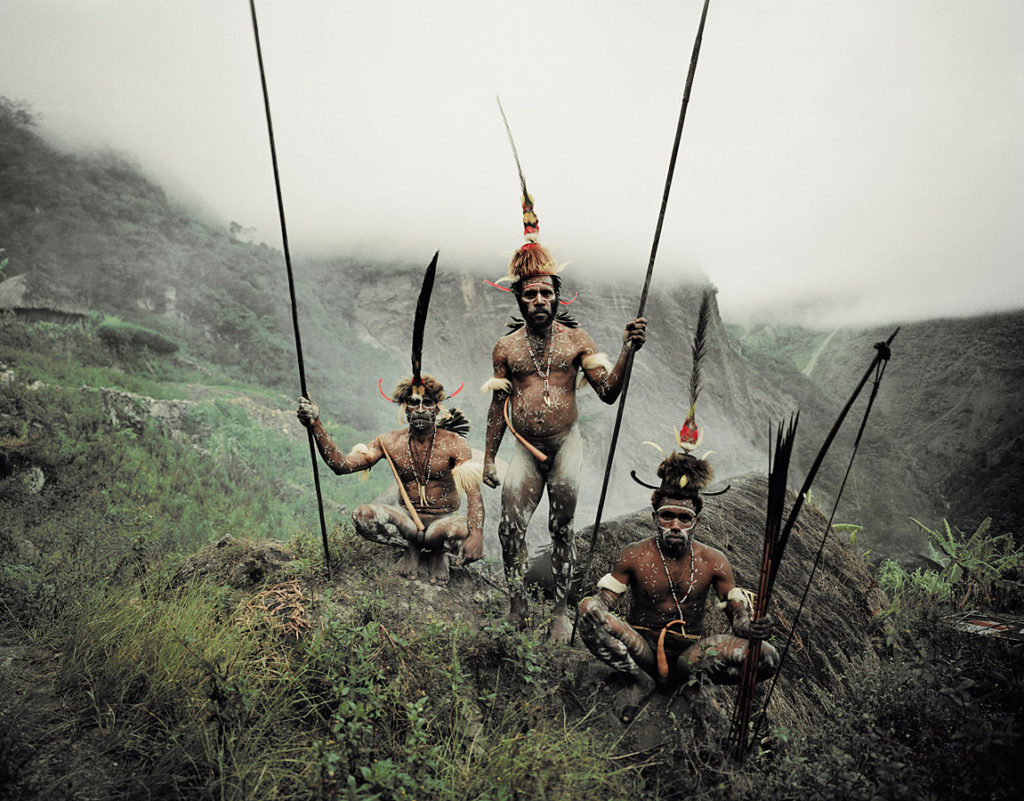Let’s begin with a few axioms and theses:
Axiom 1. Freedom and servitude are opposite notions.
Axiom 2. Instead, servitude and domination are complementary notions.
Axiom 3. Domination and servitude establish social inequality.
Thesis 1. All forms of state entail some sort of domination and servitude, hence inequality. Therefore, they restric freedom.
Thesis 2. Freedom can only exist in the absence of social domination and servitude, and therefore without the state.
With this in mind, one may say that:
1. Most extramodern stateless societies societies lack government, hence they also lack social domination and servitude.
2. They are not only societies without state, but also, as Pierre Clastres suggests, societies against the state – myth, ritual and war being the basic means they have provided themselves with to prevent the formation of the state.
3. Paradoxically, what moderns would define as those societies’ “irrationality” (be it theoretical or practical: myth and ritual, respectively) and “violence” (be it internal or external: ritual and war) are but the guarantee they have to protect social freedom.
4. Labelling such stateless societies “primitive” or “archaic” (placing them in a prior/lower degree of social development in comparison to ancient and modern state societies) precludes the very possibility of learning anything from them.
5. The refusal to learn from them is the effect of an aprioristic ideological assumption that serves to validate social Darwinism – the view that, historically, social formations have developed following an overall progressive or ascending logic: from less to more, from worse to better.
6. Because of this, extramodern stateless societies have been “legitimately” colonised, or in other words conquered and destroyed, by modern western societies since the 15th century in Africa, America, Asia, Australia, and Oceania.
7. Their destruction has taken the forms of genocide and ethnocide (the former meaning the destruction of other peoples; the latter, the destruction of their cultures).
8. In addition to viewing the extramoderns as inferior to themselves – from the 17th century onwards(*) – “civilised westerners” have frequently projected onto their stateless societies the shadows of individual servitude, i.e. the view that they do not grant individual freedom. But this is absurd: it portrays stateless societies as totalitarian state societies, which is far from being the case. In stateless societies, where society is indivisible and power never detached from it, people are, in principle, free to do anything they want to with only one exception: accumulating power in one’s hands.
9. Furthermore, colonialism has developed in three phases, be they subsequent or synchronically combined: (1) killing/enslaving the Other; (2) suppressing its difference to make it fully human/a citizen; and (3) selectively suppressing essential aspects of its difference, while keeping others as folklore, to make it a type of (new) global citizen – and a (new) capitalist consumer.
10. Today the ethics of humanism (indigenous populations should not be “left behind,” they too must be provided with “education and/or health care,” “nation-states” must veil for “all their citizens alike,” “human rights should be extensive to all,” etc.) supply its spirituality to the theory and practice of ethnocide.
11. Being myth and ritual two of the means that stateless societies have to maintain their differential political identity, replacing them with modern “scientific” education is a form of ethnocide. Similarly, since war is the other mean they have to maintain their political identity, opposing to it the rhetoric of “human rights” represents another form of ethnocide.
12. Stateless societies have other ways of knowing, being, and doing that we must learn from, and in order to learn from them we must first accept the challenge they posit to our conceptual imagination.
13. Additionally, they can also teach us many practical things. Given, for instance, their general lack of negative impact on “nature” (for they have neither put at risk biodiversity, nor have they altered the natural cycles of the earth) they can teach us many things in matters of ecology and help us cope, therefore, with one of the biggest problems we face today – a problem that cannot be confronted by appealing to the notion of “sustainable development” (which amounts to think of an alternative “management” of the “natural resources”) but that demands a total change of mentality. Likewise, they can teach us important things in matters of economy, as far from being “economies of subsistence,” as they have been unfairly described, theirs are, more often than not, “affluent economies.”
Further reading: Pierre Clastres, Society against the State
(*) In contrast, Early European, especially French, depictions of indigenous peoples were often positive. Consider, for example, the works of Jean de Léry and Montaigne. Writing in the 18th century, Rousseau, Bouganville, and Bernardin de Saint-Pierre echoed their views.

Dani warriors near Wasagalep Village in Southern Baliem, West Papua. Photograph by Jimmy Nelson (2010).
